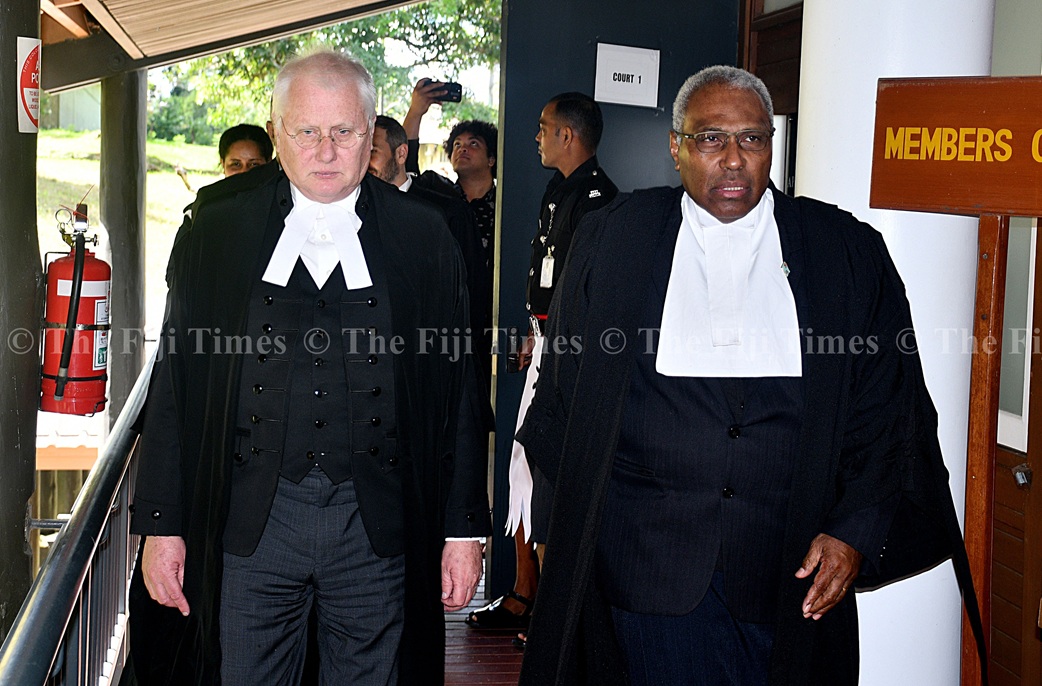Applying the same rules to amend the very provisions that set those rules would be circular and illogical, says State counsel Bret Walker.
Mr Walker, concluding hearings on the constitutional reference regarding the legitimacy of Fiji’s 2013 Constitution, argued that Section 160’s rigid amendment procedures do not and logically cannot apply when changing Section 160 itself.
Section 160 outlines the procedure for constitutional amendments, requiring a 75 per cent majority of all members of Parliament and a national referendum with at least 75 per cent of registered voters in support.
Mr Walker contended that expecting Section 160 to govern its own alteration imposes an illogical and impossible standard.
“I simply want to point out that it is a fact that it received the support of the votes it did receive,” he said.
“If we are correct, 159(2)(c) never stood in the way, and if we are correct, 160 was not required to be observed.”
Mr Walker asserted that section 160 was never intended to apply to changes concerning itself and that such questions fall squarely within the domain of Parliament.
He said while inclusive participation and committee engagement were politically desirable, they were not constitutionally required.
“It would be wise to engage as much participation, including by consultation, which would be a good thing.
“But this court has no footing in any of the cases in Fiji.
“Democracy will stand because it cannot be said that anything that is enacted by a simple majority in a Parliament is undemocratic.
“It cannot be said that it doesn’t involve self-determination.”
He further warned that imposing judicial limits on parliamentary majority rule would be inappropriate and potentially undermine democratic processes.
He said that if the court allows laws, especially constitutional changes, to be made by a simple majority in Parliament (such as 48 or 55 votes), people will rightly criticise the court for weakening the Constitution.

